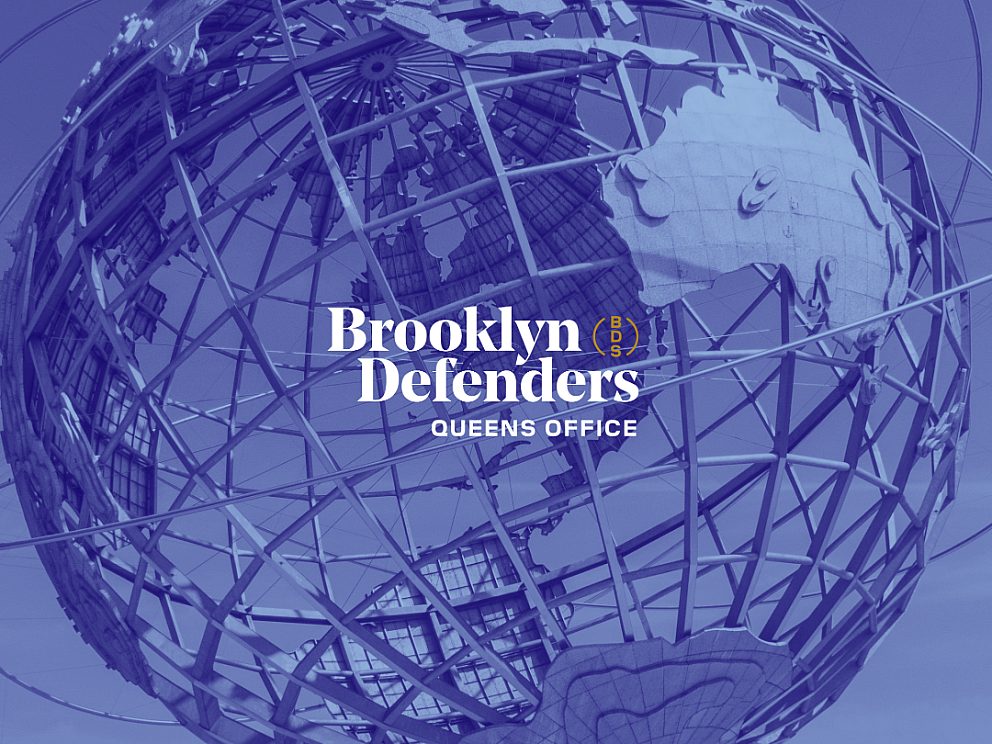Brooklyn Defender Services Urges Governor Cuomo to Sign the Preserving Family Bonds Act
June 9, 2021
Contact: Daniel Ball, dball@bds.org
***For Immediate Release***
Brooklyn Defender Services Urges Governor Cuomo to Sign the Preserving Family Bonds Act
Legislation to Allow for Open Adoptions from Foster Care Passed Both Houses of Legislature
(BROOKLYN, NY) – Nila Natarajan, policy counsel and supervising attorney with Brooklyn Defender Services’ Family Defense Practice, released the following statement urging Governor Cuomo to sign the Preserving Family Bonds Act (A6700/S6357 - Joyner/Savino) following its passage in the New York State Assembly this afternoon and the New York State Senate on Friday:
“With the passage of the Preserving Family Bonds Act, New York has taken bold action to recognize the importance of openness in adoption and continuing family ties for children who are adopted from foster care. Even if a biological parent is unable to care for their child, post-termination contact allows a child to retain a vital relationship with their parent and allows that biological parent to play a positive role in the child’s life. This legislation ensures that children who would benefit from contact or visitation with their birth families after a parent’s rights have been terminated are able to do so, to the benefit of the children, their birth families, and their foster and adoptive families.
We thank Assemblymember Latoya Joyner and Senator Diane Savino for championing this legislation and the many advocates and families statewide who fought for years for this change. We urge Governor Cuomo to immediately sign the bill into law.”
Background:
The Preserving Family Bonds Act (A6700/S6357) provides Family Court judges with discretion to order continued visitation and/or contact between children and their families of origin after a parent’s rights are terminated, and recognizes the value that post-termination contact has for many children and their families of origin.
The current law in New York allows open adoption and post-termination contact when parents voluntarily surrender their parental rights, but deprives courts of the authority to allow for contact between children and their biological parents after a parent’s rights have been involuntarily terminated. This procedural distinction should not determine whether and how children have ongoing contact with their families of origin.
Most children placed in foster care have significant ties to their biological families. Even children who enter foster care at birth and are ultimately adopted will likely have had regular contact with their biological families for a lengthy time period, even years, and developed strong bonds with them prior to termination of parental rights. Children who enter foster care and are eventually adopted can experience long-term emotional consequences stemming from the break-up of the biological family, the disruption in the children’s most basic source of security, and feelings of displacement that may follow.
A growing body of research shows that retaining contact with biological family members may be in that child’s best interest. Even when a biological parent is unable to care for their child, post-termination contact allows the child to retain a relationship with his or her family, and allows a biological parent to play a positive role in the child’s life. It can help a child develop a more secure sense of self by offering them the ability to better understand their biological family and what led to the termination of their legal relationship. Biological parents can reinforce that the termination was not the fault of the child and that the parent still loves and cares for the child, even if they are unable to parent him or her. Post-termination contact allows children access to their racial, ethnic, religious and cultural histories, critical in developing a sense of self.
The Act is consistent with the federal government’s latest guidance regarding state efforts to obtain permanency for children in foster care, issued in January 2021, which placed significant emphasis on the importance of maintaining children’s ties to their families and communities of origin. The guidance made clear that in the vast majority of families, “adoption should be viewed as an opportunity to expand a child’s experience of family rather than replace their previous family,” and that children’s relationships with their biological parents, siblings, and extended family members should continue even after termination of parental rights and adoption: “Children do not need to have previous attachments severed in order to form new ones. In fact, they will be better positioned to develop new relationships if we work to preserve their original connections, sparing them from additional grief and loss."
The Preserving Family Bonds Act will allow New York law to better address the realities and needs of families involved in the child welfare system, and will allow family courts to tailor dispositional orders in termination of parental rights proceedings to meet the needs and best interests of children.
Brooklyn Defender Services (BDS) is a public defender organization serving tens of thousands of Brooklyn residents each year since 1996. Our mission is to provide high-quality and client-centered criminal, family, immigration, and civil legal representation, as well as social work support and advocacy for people who cannot afford an attorney.
###

